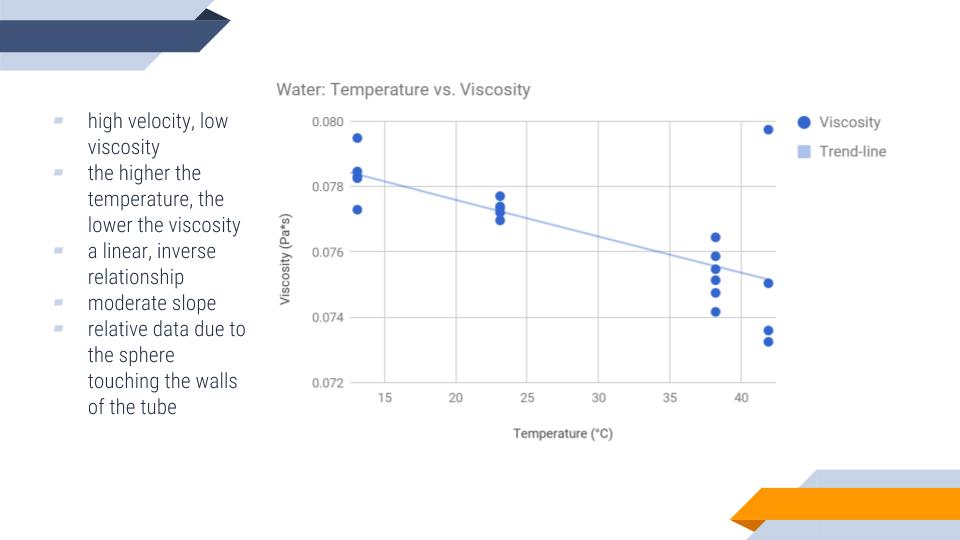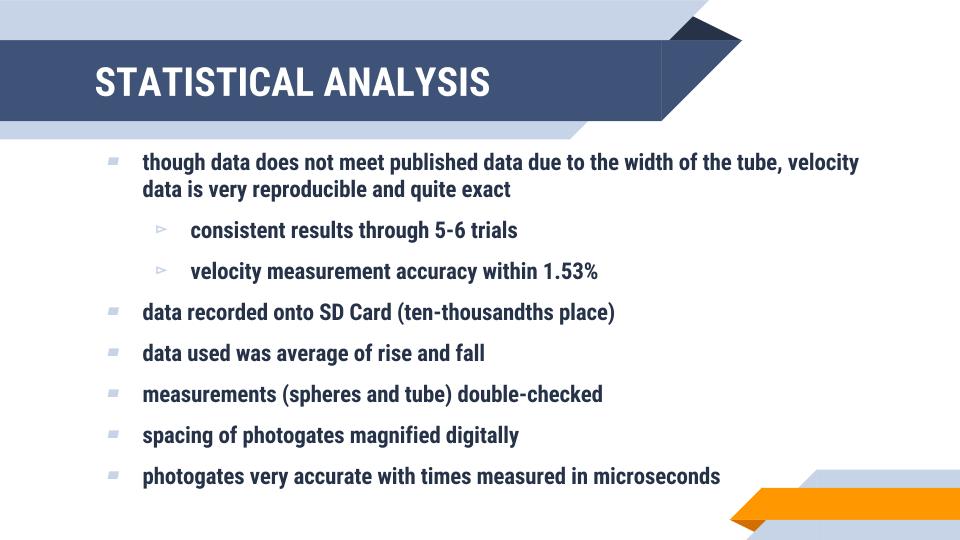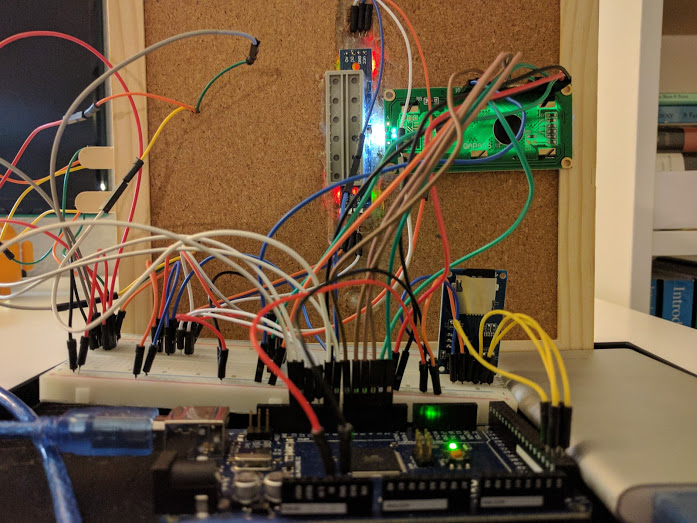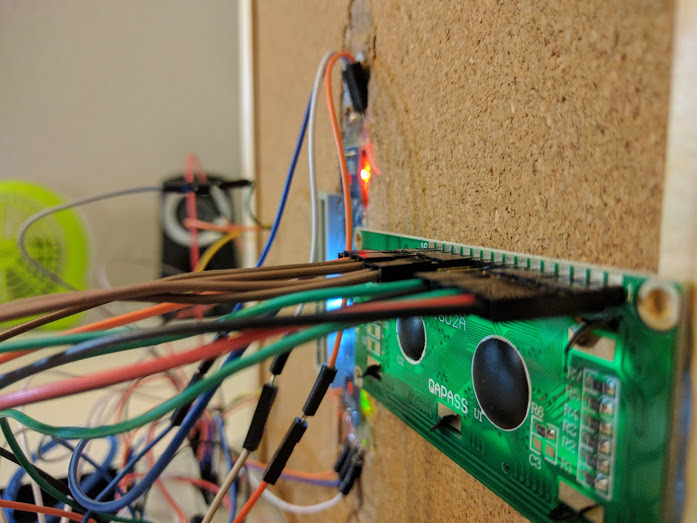Summer Science Research Mentoring Program
You can show your creativity in applying your science knowledge through conducting a science fair project. What college doesn't want to admit creative students? Do you not have a clue how to do a science fair project? Then this is the class for you.
Class Description: Andrew will mentor on how to form a science fair project proposal as well as helping the students brainstorm ideas and compose a well-written proposal. He will motivate the students to acquire science knowledge (through reading textbooks, etc.) themselves in order to apply them to their science projects. You will learn how to present your project's data, analysis, and conclusions appealingly.
Time:
6/11 to 6/15. Monday to Friday. 9:30am to 12:30pm.
6/18 to 6/22. Monday to Friday. 6:00pm to 9:00pm
Tuition: $368.
Address: 20432 Silverado Ave, Ste 5, Cupertino, CA 95014
Registration: https://goo.gl/G6qhwp
Day 1: What is science fair? Andrew will present his two-year experience as well as his science fair project.
Day 2: What research papers should I read? How should I read them?
Day 3: Reading research papers, brainstorming ideas
Day 4: Continue brainstorming ideas
Day 5: Writing a hypothesis and gathering materials for the project
On the week of June 11, the science research training class was very successful.
What the students said about this class:
- This class has been a great learning experience, which allowed us to choose a topic that we liked.
- I finally started on a project with a semi-decent idea.
- Andrew was super helpful. He knows what he is doing and it was good that we got personal help.
- Itis really fun, as long as you're interested, and can really boost your knowledge about science.
- In this class I learned how to read science articles more efficiently. I also learned how to better plan out big projects or expand on big ideas. The teaching was good and gave me insight on my own idea.
Instructor:
Andrew Li is an incoming freshman to Stanford and graduated Lynbrook senior. He won Grand Prize Alternate to Intel ISEF at Synopsys Championships as a sophomore and Siemens Semifinalist as a senior. Andrew enjoys helping his fellow underclassmen brainstorm and form proposals for science fair projects.
He had worked two years on his science fair project. During freshman year, he proposed three unfeasible experiment ideas--in fact, his teacher said the budget for one proposed project could afford a mansion! Consequently, he studied past research papers the entire summer and was finally able to submit a successful project during his sophomore year.
Course Objectives
This is an introductory class on how to perform non-University affiliated research, with intention to participate in a local science fair. The intended audience will be an enthusiastic student in 8th to 10thgrade.
In this class, every student is expected to spend ~5 hours/week working on their project. The project will be physical-science based, and we shall use Arduino platform for data collection. Since everyone will be working on the same demo project, the results will not be eligible to be used as an actual entry to a science fair, but students will learn the necessary skills in the process. The Arduino kit and the accessories (sensors, LCD) will be provided at a cost of ~$80.
Students perform experiments on days 7-10, prepare the presentation slide during weeks 11-12, and present on the last week of the class.
7/31 to 8/12, Monday to Saturday/Sunday; 1:30-4:00pm or 6:30-9:00pm
Registration: https://goo.gl/r6ngCF
Watch the video of the seminar “Science Fair for Middle School and High School students” on April 26, 2017
The video of Dr. Liu’s talk Learning Physics is https://youtu.be/J05NVx9WzMY
Syllabus
| Day | Topic |
| 1st | Brainstorming, Literature Search, Choice of Topic |
| 2nd | Acquiring Necessary Equipment, Buy or Build Decision |
| 3rd | Introduction to Arduino, Basic Electronics |
| 4th | Arduino I/O, Hardware Debouncing, LCD interfacing |
| 5th | Arduino Sensors, I2C, SPI protocol |
| 6th | Arduino Relays, SD Card Interfacing |
| 7th | Physics Background of our Class Project |
| 8th | Details of a Past Winning Project A in Physical Science |
| 9th | Details of a Past Winning Project B in Physical Science |
| 10th | Advanced Topic: IoT (Internet of Things) |
| 11th | Notebook, Data Presentation; Judging Rubric |
| 12th | 1-page Abstract, 2 Speeches |
| 13th | Individual Student Presentations |

Student's sample slides

Student's sample slides

Student's sample project

Student's sample project



About the instructor:
廖老师是电子工程博士,师从诺贝尔物理得奖教授Prof H Kroemer。他有二十多年教学经验。他思路清晰,讲课有趣味,擅长深入浅出。
Dr. Liu graduated from UCSB with a PhD in Electrical and Computer Engineering under Prof H Kroemer (who won the Nobel Prize in Physics, 2000) and Hong Kong University with a BSc, also in Electrical and Computer Engineering. Dr. Liu has extensive research background in semiconductor physics, was a session chairman for various international conferences in semiconductors and Molecular Beam Epitaxy, holds 8 US patents and 2 European patents.
Dr. Liu has been tutoring and mentoring middle school and high school students in the areas of
*Algebra I and II, Geometry, Trig, Pre-Calc, AP Calculus AB and BC; AMC 8/10/12
*Physics, AP Physics 1 and 2, AP Physics C (Mechanics and E/M); F=ma and USAPhO
*Java programming, AP Computer Science A
*Science Fair
Awards his tutored students have achieved include: (1) Silver Medal Semifinalist, USA Physics Olympiad (2) Gold Division, USA Computing Olympiad (3) Qualifier, USA (Junior) Math Olympiad, American Invitational Mathematics Examination (4) Finalist, Intel International Science and Engineering Fair (5) Top awards in Physical Science Category in Regional Science Fairs (Synopsys Silicon Valley Science and Technology Championship); Qualifier, California State Science Fair.
The instructor Dr. Liu’s former student has received grand prize at Synopsys science fair and was accepted by all of the top colleges he applied.
廖老师以前的学生连续四年拿到了Synopsys science fair 大奖,今年被所有申请的名校录取。
